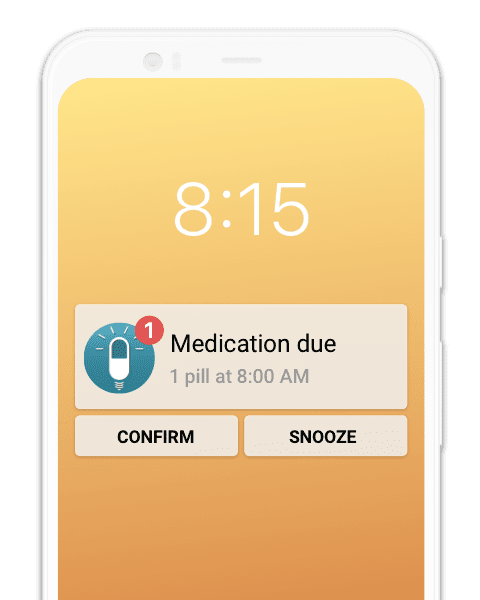Even though shortness of breath and yawning is so common and normal, it is nevertheless one of the behaviors that scientists are least familiar with, and many of them are curious in its possible communication or societal functions.
Shortness of breath, on the other hand, is one of the most prominent anxiety symptoms, but it could be an indication of another condition. It can also occur for a variety of reasons: it may be a symptom of a more serious condition, the most prevalent of which are illnesses affecting the lungs or heart. It can happen at any time of day or night, and during any activity. Dyspnoea can occur at inconvenient times and in a predictable pattern; it might be a pathological sign or the result of an illness or sickness.
Causes of yawning
Anxiety
According to research carried out by the scientist Elisabetta Palagi on lemurs, these animals open their mouths when they feel in danger because this raises the levels of cortisol in their bodies. This is one of the hormones released when high levels of stress are reached, which can help the animal to be more alert and better able to escape from predators.
'Cooling' the brain
Yawning serves to cool the brain to maintain alertness and optimal functioning.
Oxygenate the brain
When our brain does not recognize adequate oxygen levels in our blood, we yawn. We inhale additional air with this gesture, restoring normal oxygen levels.
Sexual function
Yawning precedes mating in several species. As we transition from not feeling the urge to being sexually stimulated, we yawn, and some theories believe that how much we yawn might tell us how much sex we have.
Empathy
The contagion of yawning is greater among family members, secondly among friends and lastly with acquaintances and strangers. This is because yawning is considered a sign of solidarity with other people.
Intelligence
According to several studies, there is a link between the duration of yawning and the intelligence of different species. According to these studies, the more seconds a yawn lasts, the more neurons and brain complexity a person will have.
Causes of Shortness of Breath
Anxiety
Both shortness of breath and the sensation of choking or suffocation are among the symptoms of anxiety. When anxiety develops into a chronic disorder, these sensations can be experienced throughout the day.
Excessive physical activity
You may feel short of breath when you start any kind of exercise. You should continue to exercise regularly so that your heart and breathing can get used to the physical exertion.
Pregnancy
It is common for pregnant women to feel shortness of breath after 26 weeks of gestation, because the diaphragm is compressed by the growing belly, this causes the lungs to have less space to distend.
COVID-19
This disease depends on the individual, but the sensation of shortness of breath can occur in some people. The fatigue after COVID-19 study found that individuals that had COVID-19 suffered from an increase in fatigue and yawning.
Heart problems
Diseases such as heart failure cause shortness of breath on exertion (such as climbing stairs or getting out of bed). This sensation often worsens over time and chest pain may also occur.
Respiratory illnesses
Flu and the common cold often cause shortness of breath and coughing. But certain respiratory diseases, such as asthma, bronchitis, pneumonia, pulmonary oedema and pneumothorax cause shortness of breath.
Here are the symptoms of each:
- Asthma: Shortness of breath begins suddenly and may feel like suffocation or a tight feeling in the chest that may be accompanied by symptoms such as coughing or prolonged expiration.
- Bronchitis: Shortness of breath is directly related to phlegm build-up in the airways or lungs.
- COPD: Shortness of breath starts slowly and worsens over time, usually affecting people with bronchitis or emphysema. This shortness of breath is often accompanied by severe coughing with phlegm or prolonged expiration.
- Pneumonia: In this disease, shortness of breath is felt gradually and becomes worse over time. Other symptoms that may occur include back pain or lung pain.
- Pneumothorax: Shortness of breath begins suddenly and is accompanied by back pain or lung pain when breathing.
Airway obstruction
Shortness of breath occurs suddenly when an airway blockage occurs. This blockage can be partial or complete. When it's only partial, the person has trouble breathing and coughs until the irritating object is ejected. When the obstruction is complete, however, it can be detected because there is no sound when breathing or the person is unable to speak or cough, and they frequently experience cardiorespiratory arrest and pass out.
Allergic reaction
Shortness of breath occurs abruptly after taking medication, eating something to which the person is allergic to, or being bitten by an insect to which the person is allergic to. This is a symptom of a severe allergy that can result in anaphylactic shock.
Neuromuscular diseases
Diseases that cause weakness of the muscles that produce breathing can cause shortness of breath.
What can cause yawning and shortness of breath?
We have compiled some of the causes that can cause shortness of breath and yawning, some of the possible causes include:
Obstruction in the airway
One of the most common causes of shortness of breath is obstruction of the airway, which runs from the nose to the alveoli of the lungs. When this obstruction occurs in the nose and pharynx, sleep apnea may occur. Because of apnea, you do not rest well and you may feel tired the next day, which leads to more yawning.
It is essential to identify the cause of the obstruction and to find out why the air does not reach the lungs properly. This can be done by seeing a doctor and being referred to a specialist.
Migraine
Migraines make our daily lives more difficult, and in the most severe circumstances, they can render a person invalid. Certain symptoms, such as the emergence of yawning and, to a lesser extent, the sense of shortness of breath, can be used to predict the onset of a migraine in some patients.
Cardiovascular problems
Certain cardiovascular problems in the heart or blood vessels can cause dyspnea and excessive yawning. Symptoms are varied and include: hypotension, fainting, blurred vision, palpitations, shortness of breath or excessive yawning.
It is important to see a doctor for any symptom in order to study the person's medical condition.
Cerebral problems
Some nervous system disorders can trigger symptoms similar to vasovagal syncope. In these cases, other symptoms such as confusion, vision problems, balance and hearing problems, among others, may also occur. In these cases it is important to see a doctor immediately.
Dryness
Dryness, dehydration and lack of oiliness can cause a number of symptoms including shortness of breath and excessive yawning. To reduce this sensation, make sure your diet includes fresh, healthy produce, healthy fats, exercise and relaxation techniques.
Here's a article that we think you might be interested in:



